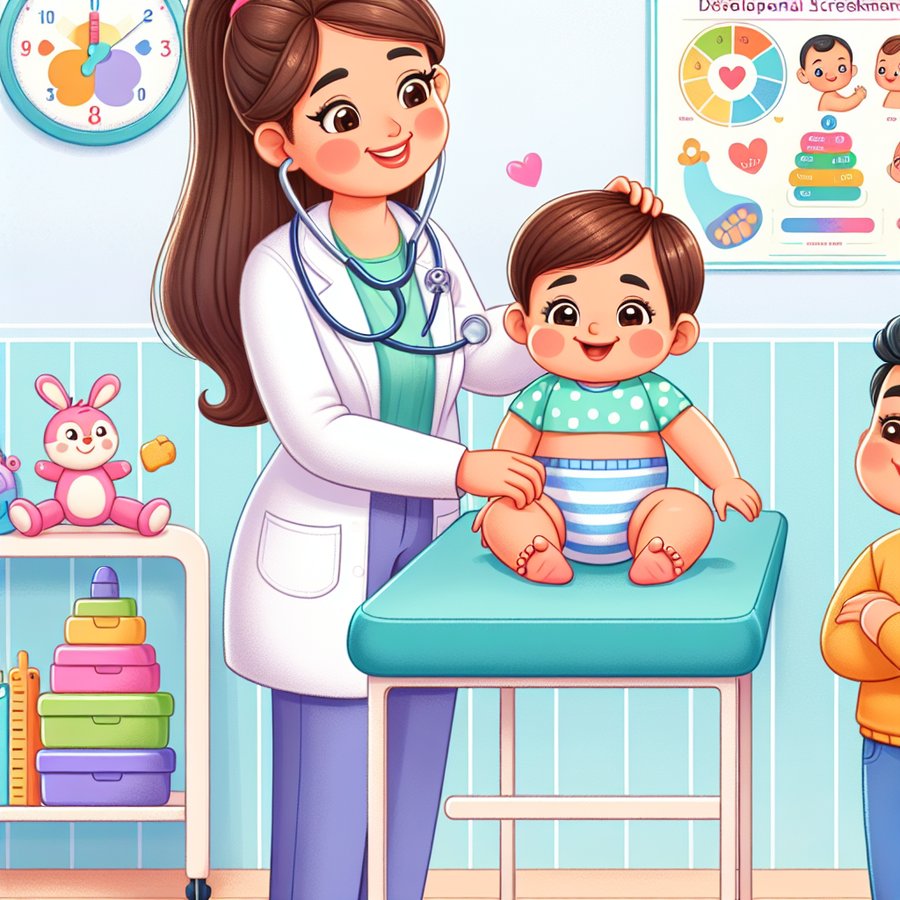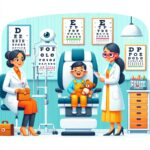The importance of well-baby visits and developmental screenings cannot be overstated in the journey of raising a healthy and thriving child. These visits are crucial benchmarks for parents and healthcare providers to ensure that babies are hitting developmental milestones, receiving necessary immunizations, and getting professional advice on nutrition and safety. This article dives deep into why these check-ups are pivotal and how they can positively impact your child’s health trajectory.
Understanding the Role of Well-Baby Visits
Well-baby visits are scheduled appointments with your pediatrician that allow for a comprehensive review of your baby’s health, growth, and development. These appointments serve as a proactive approach to healthcare, identifying potential concerns early on and implementing strategies to address them. According to the Centers for Disease Control and Prevention (CDC), regular screenings during these visits can help detect developmental disorders and provide a pathway to intervention services that can significantly alter a child’s developmental path.
During these visits, pediatricians assess physical growth through measurements such as weight, length, and head circumference, allowing for early detection of growth patterns that may indicate underlying health issues. Furthermore, developmental screenings during well-baby visits help identify delays in areas such as language, motor skills, and social interactions. Addressing these delays promptly can lead to more effective treatments and support for both the child and the family.
The Importance of Well-Baby Visits and Developmental Screenings in Early Detection
Early detection of developmental delays or health issues is one of the most critical aspects of well-baby visits. These early stages of a child’s life are foundational, and identifying concerns during this period can make a substantial difference in their long-term health and development. Developmental screenings are specifically designed to pinpoint areas where a child might need further evaluation or intervention, offering a crucial window for early action.
Research has consistently shown that early intervention in cases of developmental delays can lead to significant improvements in a child’s abilities and overall quality of life. By regularly attending well-baby visits and adhering to the recommended schedule for developmental screenings, parents can ensure that their children receive the best start possible. These screenings also provide an excellent opportunity for parents to discuss any concerns or observations about their child’s development with a healthcare professional.
Maximizing the Benefits of Well-Baby Visits
To truly maximize the benefits of well-baby visits, it’s essential for parents to prepare for each appointment. Making a list of questions or concerns beforehand can help ensure that no significant topics are overlooked. Topics often discussed during these visits include feeding and nutrition, sleep patterns, safety measures, and behavioral expectations. By actively participating in these discussions, parents can gain valuable insights and recommendations tailored to their baby’s specific needs.
Furthermore, well-baby visits are an excellent opportunity to stay up to date with your child’s immunization schedule. Vaccines are a vital part of preventive care, protecting against various diseases that can have serious health implications. The American Academy of Pediatrics provides a comprehensive guide on immunizations, ensuring parents have access to current recommendations and schedules.
In conclusion, the importance of well-baby visits and developmental screenings in ensuring the health and well-being of children cannot be understated. These visits provide a foundation for early detection and intervention, which can have a profound impact on a child’s developmental trajectory. By maintaining regular appointments and actively engaging with healthcare providers, parents can support their children’s health and development in the most effective way possible.
For more information on ensuring your baby’s health and safety, consider reading about recognizing signs of food allergies in infants, choosing the safest baby car seats for newborns, and safe sleep practices to reduce the risk of SIDS.













